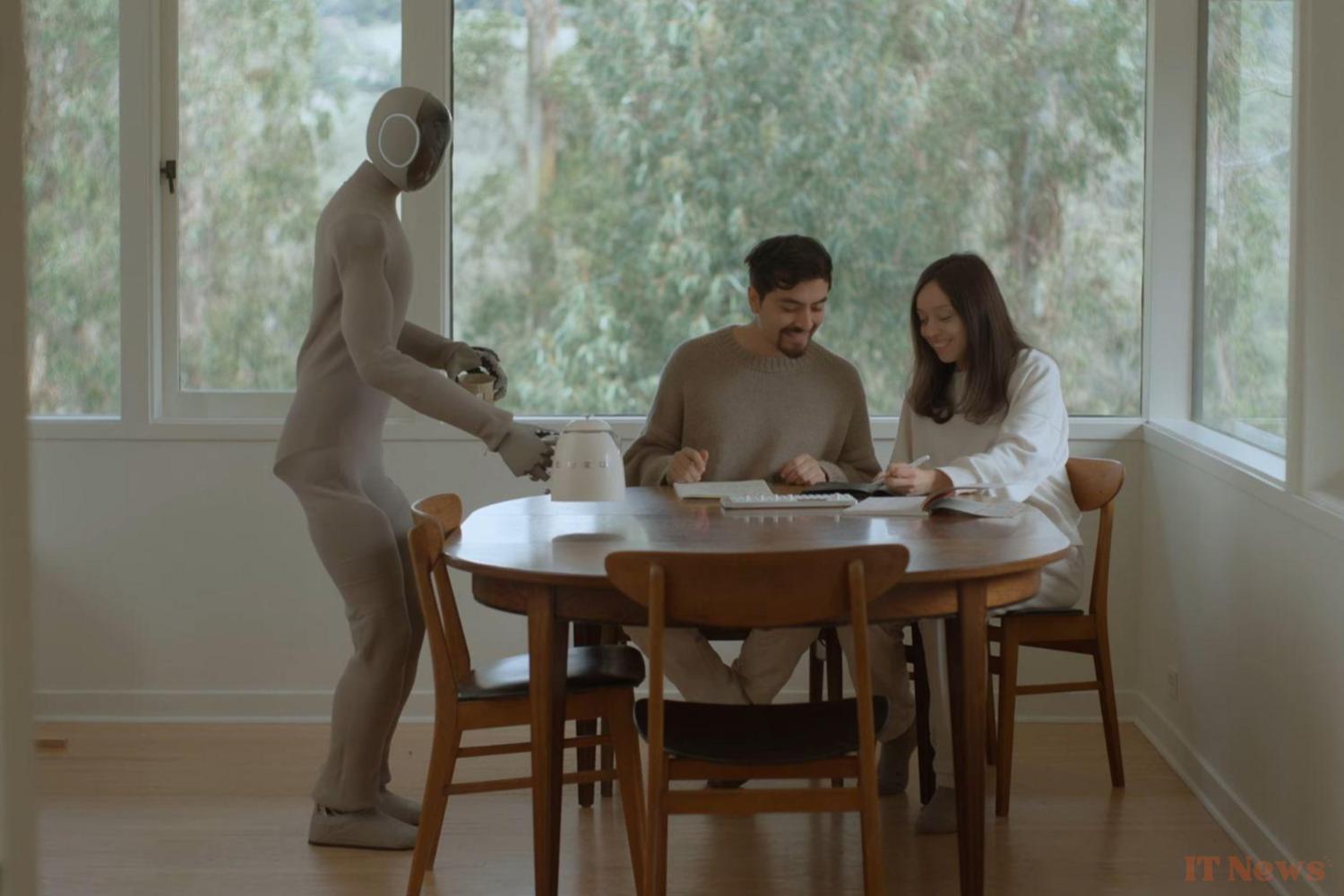More and more companies are now working on domestic robots, designed to free humans from everyday chores. Some of these androids, like those from Figure, have already found positions in the industry—but to date, none of them have started cleaning or folding clothes. However, that could change in the near future: two of the most promising startups in the sector now plan to send their robots on missions to people's homes as early as this year.
The first is none other than the American company Figure, one of the most advanced at the moment. Its first bipedal robot, simply named Figure 01, is known for its impressive dexterity and adaptability, enabled by the integration of several AI models.
It is also one of the rare machines of this kind that have already set foot outside the labs to start working: since last year, a few units have joined the BMW plant in Spartanburg, in the United States, where they are responsible for handling, among other things.
Figure's humanoid robot arrives at a BMW plant
Figure is now working on a new iteration, Figure 02. According to TechCrunch, this model will benefit from an "alpha testing" campaign in direct contact with humans. It will indeed be deployed to a few volunteers who agree to host it in their homes.
It will be interesting to see how this campaign unfolds, knowing that the domestic market is not Figure's priority. The company seems more focused on industrial environments like factories and warehouses.
1X, a Norwegian startup going against the grain
A choice that is undoubtedly pragmatic, for both economic and technical reasons. Industry is a larger market, and making robots work in well-structured environments of this kind is significantly less complex than making them meet the much more specific requirements of individuals.
But some diehards continue to make it their priority. This is notably the case of the Norwegian startup 1X, one of the rare players in the sector that remains focused on this objective. And it is preparing to take a significant step in this direction. According to its CEO interviewed by TechCrunch, it will also begin testing its Neo Gamma robots in "a few hundred" homes this year.
Again, the goal is not to sell a mature product in the short term. 1X spokespersons openly admit that their machine is still far from having reached the level of autonomy and reliability that will allow large-scale production. The idea is rather to begin studying how Neo Gamma behaves in completely unknown environments, so that the company can consolidate its roadmap.
The whole question is whether individuals will be attracted by the idea of hosting such an experimental machine. This is anything but a guarantee, because the offer comes with an asterisk that risks being completely prohibitive for the majority of people. Since the robot's autonomy is still quite limited, it will sometimes have to be remotely assisted by a human teleoperator, who will then be able to take control of the machine... and its cameras, with all that this implies in terms of confidentiality!
It will therefore be very interesting to follow the results of these first experiments in real conditions. The commercial stakes are considerable. If these test campaigns prove disastrous, it could well force the companies concerned to completely abandon the domestic market and pivot towards industry to continue their activity. If so, this would delay the arrival of these robots for individuals by several years, and in any case, they will still need a lot of time to reach maturity.



0 Comments